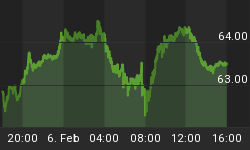What a difference fifteen months makes.
In May 2010 Israel's cold peace with Egypt was viable, the country was celebrating massive Mediterranean natural gas finds and Tel Aviv enjoyed a military alliance with Turkey, an overwhelmingly Muslim nation.
Two events have changed that picture beyond all recognition - Israel's 31 May 2010 attack on the peaceful Gaza-bound "Freedom flotilla," during which Israeli Shayetet 13 Naval Special Forces commandos killed eight Turkish citizens and an American, Furkan Dogan. Outraged by the assault, Turkish Prime Minister Recep Tayyip Erdogan demanded an apology and compensation for the unprovoked attack.
He's still waiting.
The second regional game changer has been the startling events of the "Arab Spring," which following unprecedented massive public demonstrations, on 11 February led to the resignation of Egypt's President, Hosni Mubarak, who had been in power for 29 years.
One of Israel's greatest benefits from the 1973 Camp David Accords was its ability to import Egyptian natural gas through Egypt's $500 million East Mediterranean Gas Company Ltd. (EMG) pipeline. EMG was established in 2000 and jointly owned by Egyptian General Petroleum Corp. owning 68.4 percent, the private Israeli company Merhav a 25 percent share and the Ampal-American Israel Corp. the remaining 6.6 percent.
Following Mubarak's downfall a series of attacks were made on the EMG pipeline, which supplied about 40 percent of Israel's natural gas imports, until an assault on 12 July led to its shutdown.
Switching gears, the Netanyahu government downplayed the importance of the pipeline shutdown, obviously looking forward to the swift development of its Mediterranean natural gas assets, the Tamar field, discovered in 2009 and Leviathan, discovered the following year. In June an Israeli company announced the discovery of two new natural gas fields, Sarah and Mira, about 45 miles off the city of Hadera.
Initial prospecting estimates of the Tamar and Leviathan fields, off Haifa, concluded that the two sites between them could hold as much as 688 billion cubic meters of extractable natural gas. In 2010 the U.S. Geological Survey estimated that the Levant Basin Province, covering parts of Israel, Lebanon, Syria, and Cyprus, could contain as much as 3.4 trillion cubic meters of gas and up to 1.7 billion barrels of recoverable oil.
The energy assets have focused the Israeli government's attention - on 9 August The Jerusalem Post reported that the Israeli military had deployed drones to patrol its gas fields off its northern coast in water contested with Lebanon.
The sites have already raised tensions with Lebanon, which contests Israel's self-proclaimed maritime borders giving them possession. On 4 August Lebanese President Michel Sleiman said, "We will not allow anyone to lay his hand on our wealth, which our children and grandchildren deserve. We will not only pass debts to them but also a wealth that will guarantee them a better future so that they remain in Lebanon." It should be noted that the two countries remain technically at war and will not negotiate directly with one another.
Now the wheel has taken another turn, as Turkish Energy Minister Taner Yildiz said earlier this week during an official visit to Egypt that Turkey intends to cooperate with Egypt in searching for natural gas in the Mediterranean.
It is one thing for Israel to take on Hezbollah, based in southern Lebanon and Lebanon's modest military forces - it would be quite another thing to mix it up with Turkey's military, the second largest in NATO, or Egypt's forces.
A change that should give Israeli military planners pause are reports this week in the Turkish media that Turkey's Military Electronics Industry (ASELSAN) has produced a new identification friend or foe (IFF) system for Turkish jet fighters, warships and submarines and the new software, contrary to the older, U.S.-made version, does not automatically identify Israeli planes and ships automatically as "friendly." The new IFF has already been installed in Turkish F-16s and is expected to be installed shortly in all Turkish Navy ships and submarines. It's notable that that Turkey never participated in a single one of the Arab campaigns against Israel from 1948 to 1973.
Quite aside from the ominous regional implications, there is the possibility that the U.S. could become involved in the looming dispute, as Texas-based Noble Energy has partnered with Israel's Delek Group Ltd. to develop Israel's Leviathan, Tamar, Dalit, and Noa offshore natural gas fields, and also has a concession to Cyprus's Bloc 12 offshore Mediterranean field, located near Leviathan.
All eyes are now turning towards next week's UN General Assembly meeting, where the Palestinian Authority is to press forward with a motion for recognition as an independent nation, though the final form of the petition is yet unclear. Up to 15 months ago, Tel Aviv could reliably assume that U.S. influence could prevail upon both Egypt and Turkey to shy away from supporting such a move - no longer.
Some diplomatic flexibility is called for - surely 3.4 trillion cubic meters of gas and up to 1.7 billion barrels of recoverable oil could satisfy the energy and fiscal needs of all interested parties.
The alternative is too dispiriting to contemplate. While predicting events in the Middle East is a clouded prospect at best, one thing is clear, from Iraqi President Saddam Hussein's scorched earth policy in withdrawing from Kuwait during in 1991 - oil and natural gas fields are flammable and Israel does not have enough drones to protect its offshore fields.
By. John C.K. Daly of Oil Price















